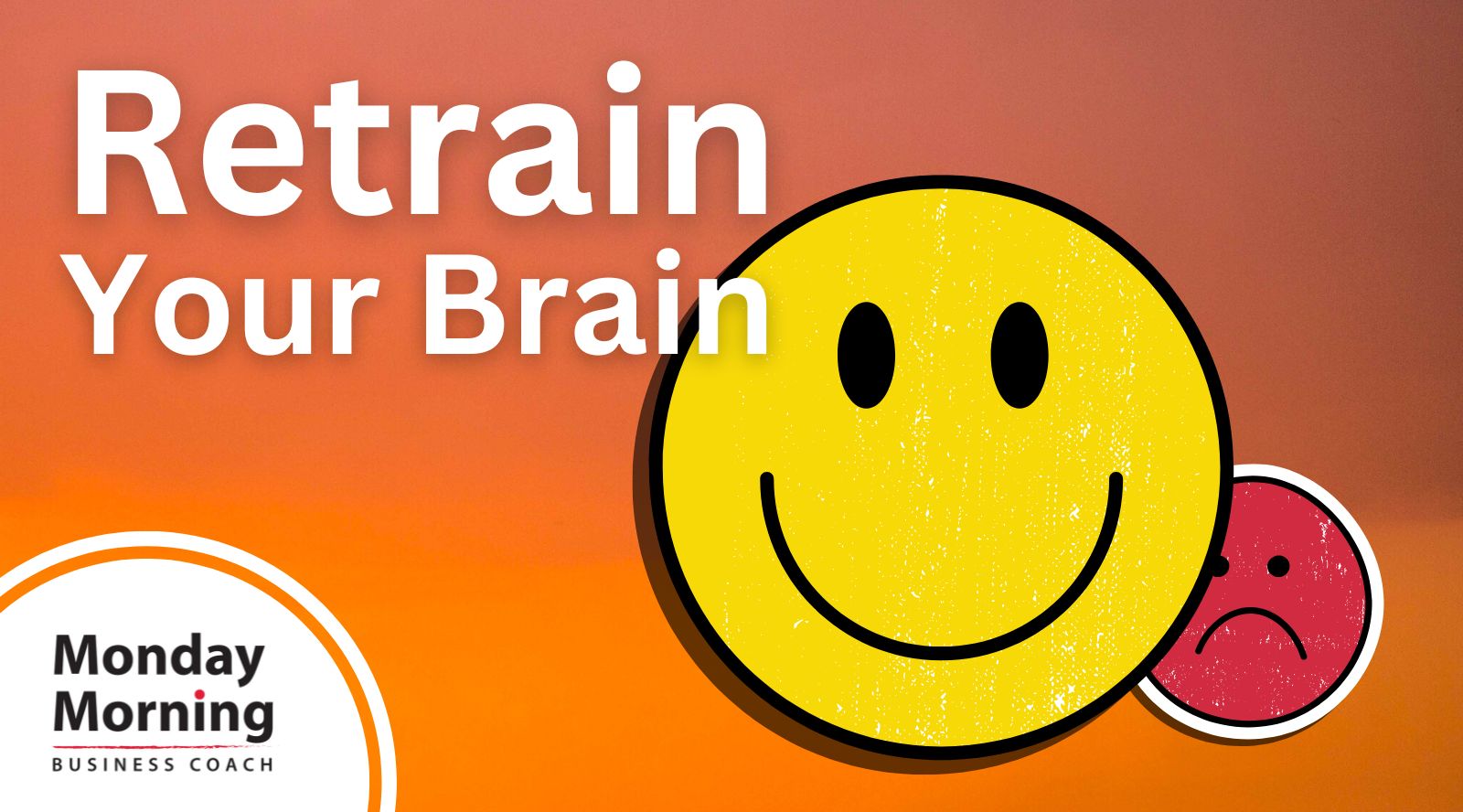Last week, we wrote about our brains and how our Negativity Bias, keeps us constantly on the lookout for potential danger. This means that we also respond more strongly to negative interactions, thoughts, and conversations than to positive ones. And we’re more likely to hold onto a bad interaction or insult than to positive interactions or a happy memory.
In that post, we listed a few of our top suggestions for ways you can start to retrain your brain to ruminate less on the negative and focus a bit more on the positive.Some of you emailed us saying the suggestions were helpful and that you’d like some additional details and examples for each of the suggestions. So, today, we’re sharing some examples of each of the 3 suggestions as well as one additional one that you might want to consider.
🟠 🟠 🟠
- Focus on your breathing.
Take a few minutes each day to be mindful of your breathing. Studies have shown that a longer exhalation can reduce anxiety and stress. Here’s a link to an article we wrote on The Power of Breathing.
Ruminating on that negative comment or stressing about something that may happen leads your body to believe that it’s currently happening to you. When this occurs, take a few minutes to pay attention to your breathing and see if you can slow it down. If you’re able, try breathing in for four seconds and out for six seconds. Repeat this for 3-5 minutes.
In addition to being helpful in-the-moment, mindful breathing can also be used in the morning to set intentions about your day, or mid-day to check-in with yourself, or even at night to help you settle into a relaxed sleep-ready mode. - Use positive self-talk.
The next time that negative feedback loop is running, try reframing it to reflect something positive about yourself. Remind yourself of the skills and talents you have.
Think about the positive feedback that you’ve received and remind yourself of all of the value you bring to the world. Remember that all of the people that you respect, who have given you affirmations, thanks, and positive feedback, were not wrong!
If you tend to ask yourself things like, “Why would I be the person who gets this job/role/promotion?” – try asking, “Why not me?” - Hold onto the good thoughts.
As good thoughts or memories come to mind, try to savor them for as long as you can and when possible, intentionally replace negative thoughts with positive observations.
For example, the next time you’re thinking about how fun it will be to get together with loved ones, and then immediately begin stressing about all of the things that could go wrong or arguments that could happen, stop yourself. Concentrate on how great the day could be and the excitement you have about seeing people you love.
We’ve also found that listening to and really hearing the gratitude that someone has for you, can be quite a gift. When someone tells you how grateful they are for the project you worked on or the way you provided support, stop for a moment, and let their words sink in. Think about how they see you and that there is truth to what they’re saying.
- Practice Expressive Writing
As described in Opening Up by Writing it Down by James Pennebaker and Joshua Smith, they suggest writing about a challenging experience for 15 minutes a day, for 3 – 5 days, or as long as feels productive to you. Their research suggests that by doing this, you may find additional significant benefits, in addition to moving beyond the pain of the initial experience.
We suggest that you explore adding some structure each day you write. For example, try to write about it from a different perspective each day. That may mean first describing the incident in as much detail as you can, then the next day describing it as if watching it from across the room, then the next day describing the gifts that you could take away from the experience, and then finally, describing how you will be when you’ve integrated the experience and moved on.
🟠 🟠 🟠
To be clear, we’re not saying that you shouldn’t ever stress about negative circumstances; they are inevitable. What we’re talking about is when negative thoughts take over and don’t allow you room to enjoy your positive moments, thoughts, and interactions.
Remember, the brain is like any other muscle that we need to train. Take a look at the suggestions above or try one of your own and let us know how it goes.
If your negativity bias
is weighing you down,
contact us today.


